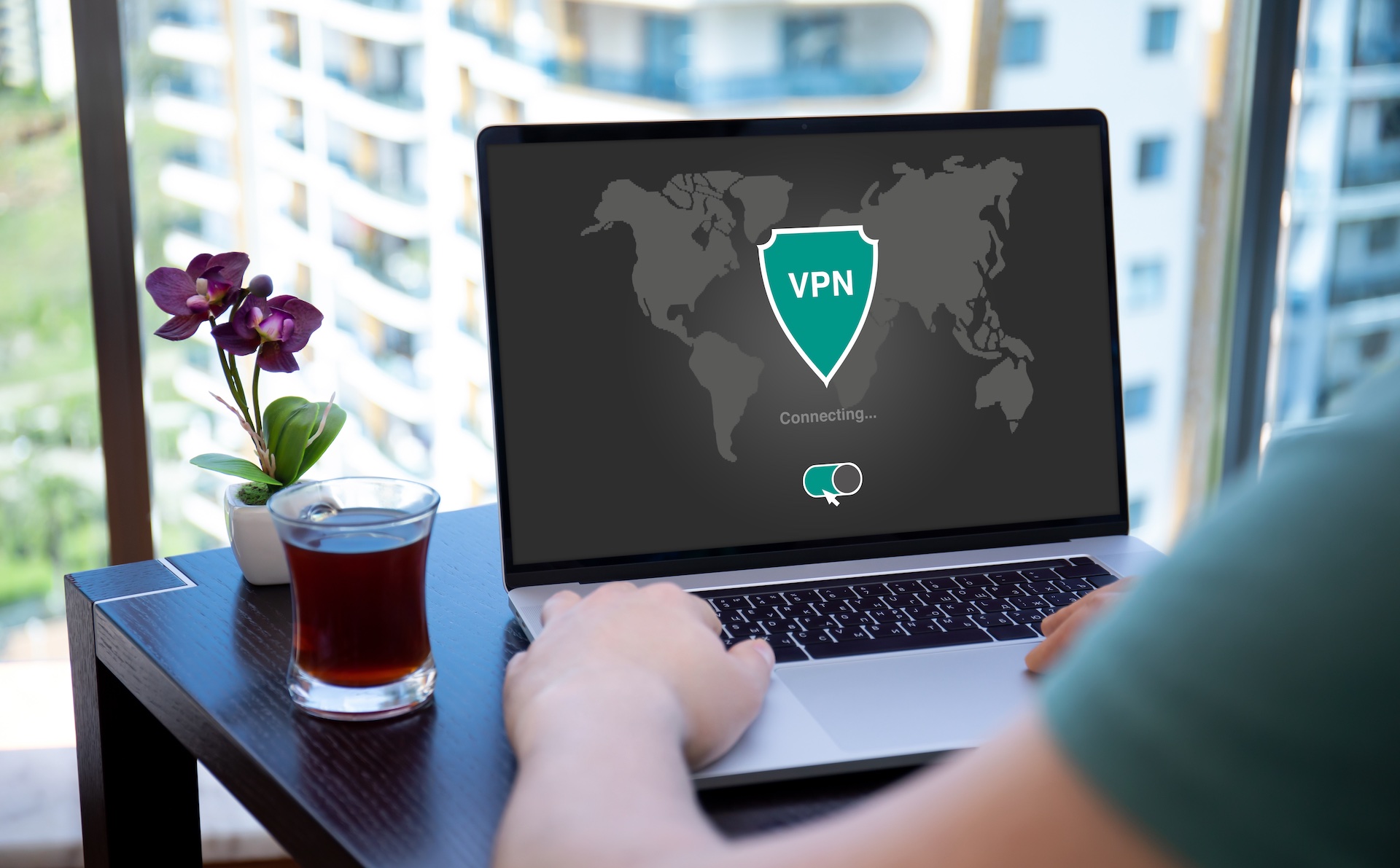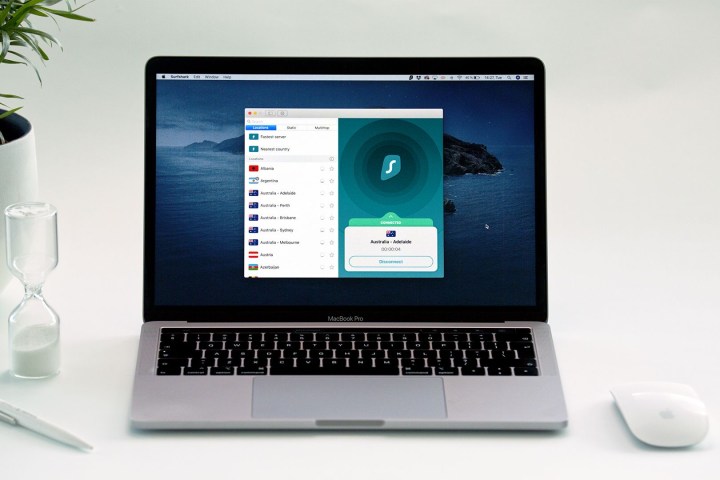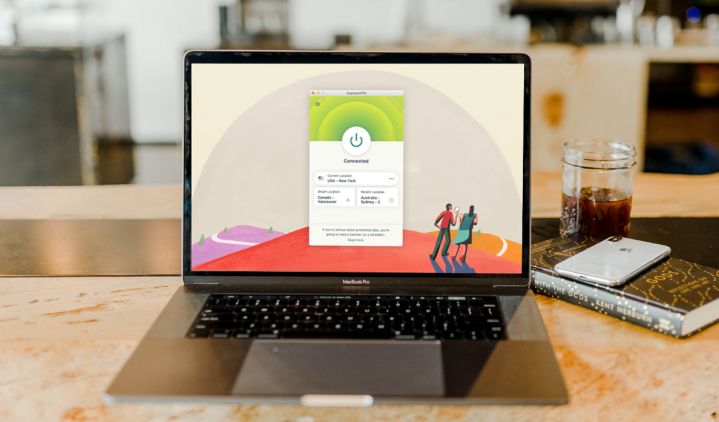Best VPN deals and sales for July 2022
Online security is vital in today's digital world, so we’ve gathered up the best VPN deals you can find.

Almost every part of our lives has become internet-connected in one way or another, so it’s natural that online privacy and security are more important today than ever before. Our social lives, finances, jobs, schoolwork, and even home appliances are increasingly dependent on the internet, which brings many conveniences we couldn’t imagine a decade ago — and plenty of new pitfalls to avoid. The easiest way to keep you and your family safe from online dangers (or even minor irritations like region-based streaming restrictions) is with a virtual private network, or VPN, which encrypts and reroutes your connection through remote servers all around the world. You don’t have to pay out the nose for the best VPN services, either, and we’ve rounded up a handful of the best VPN deals available right now from our favorite providers.
Best VPN deals
Surfshark VPN — As low as $2.30/month, normally $13/month NordVPN — As low as $3.29/month, normally $12/month IPVanish VPN– As low as $3.33/month, normally $11/month ExpressVPN — As low as $6.67/month, normally $13/monthSurfshark VPN — As low as $2.30/month, normally $13/month

Why sign up
One of the cheapest VPN services out there Basic, user-friendly interface No user limit 7-day free trial for Android, iOS, MacOSSurfshark is a top-rated virtual private network that operates more than 3,000 servers in 60-plus countries around the world. The Surfshark software is a bit bare-bones, but the VPN itself is very effective. The no-frills interface is actually a plus if you value simplicity and ease of use, and if you also want a good value, then Surfshark is a great pick and happens to be the cheapest VPN deal on our roundup if you opt for the two-year plan.
Although it’s simple, Surfshark still has it where it counts. It offers multiple encryption protocols (OpenVPN UDP or TCP, IKEv2/IPsec, and WireGuard) and performs very well with good data speeds, something we confirmed in our hands-on tests. It’s compatible with pretty much all common devices and software ecosystems — Windows, Mac, iOS, Android, Linux, smart TVs — and as a nice bonus, your subscription lets you cover as many devices and users as you want. If the price alone didn’t make Surfshark a great VPN deal, then the lack of user limits makes it a downright steal.
It’s not the fastest for things like streaming and online gaming, although it still works quite well for that. Surfshark punches well above its weight and is one of the best VPN deals up for grabs right now. There’s also a seven-day VPN free trial available for Android, iOS, and MacOS if you want to give it a spin first with no commitment.
NordVPN — As low as $3.29/month, normally $12/month

Why sign up
Great connection speeds Easy to use and reliable Huge server selection Split tunneling allows you to whitelist certain activitiesYou’ve likely heard of NordVPN, and that popularity is well-deserved. It’s arguably the best VPN as well as one of the best VPN deals available right now. It uses some of the toughest encryption protocols (namely IKEv2/IPsec, OpenVPN, and NordLynx) across its 5,000-plus worldwide servers, and it works great with pretty much all computer and mobile operating systems as well as streaming devices. It’s fast, too, and is easily one of the best Netflix VPN services if streaming speeds are a concern.
NordVPN is registered in Panama, a country known for its customer privacy laws, and delivers great connection speeds in all of our tests. It’s been one of our favorites for years, and continues to improve by adding more device compatibility and expanding its app ecosystem. You can even install it on a VPN router, which will route all your internet traffic through NordVPN without having to install and use the app on each individual device. This also allows you to bypass the six-user limit.
Another great feature of NordVPN is split tunneling. With split tunneling, you can choose which traffic goes through the VPN and which stays on the clearnet. This lets you whitelist certain activities, such as online gaming (to name just one example), that you might not want routed through NordVPN servers. NordVPN is one of the top-tier VPNs on the market, but it’s currently running a promotion that lets you score yearly plans at a discount.
IPVanish VPN — As low as $3.33/month, normally $11/month

Why sign up
Fast and secure Independently audited no-logs policy No user limit Split tunneling allows you to whitelist certain activitiesIPVanish is another great value among VPN deals, especially if don’t want to commit to more than a yearly plan. The standard IPVanish VPN service itself has everything we want to see from a virtual private network: A huge server selection (more than 2,000 servers spread across 75-plus locations worldwide), broad compatibility with devices including VPN routers, multiple encryption protocols including WireGuard, DNS leak protection so none of your location information gets seen by anybody, and a kill switch that automatically knocks you offline if for some reason your connection to the VPN server is broken.
IPVanish also boasts of a no-logs policy that’s annually audited by a third party. Many VPN providers claim that they do not keep logs, but it’s hard to know for sure if that’s really the case from the user end of things. By having its no-logs policy independently audited, you have another level of assurance that your personal information and online activities are being kept private and secure.
There are no data caps and no user limits with IPVanish, so your plan lets you have as many simultaneous VPN connections as you like.
ExpressVPN — As low as $6.67/month, normally $13/month

Why sign up
Broad device compatibility Proprietary Lightway protocol delivers great speeds and security Split tunneling allows you to whitelist certain activities Great for streamingExpressVPN is a household name in the virtual private network space as well as another of our all-time favorites thanks to its great speeds, ease of use, and unrivaled compatibility with streaming services and devices. That even includes Xbox and PlayStation consoles (in fact, it’s one of the top choices on our list if you’re looking for the best VPN for gaming) as well as an app you can install right onto your router if needed.
Along with that, you get super-fast speeds with no bandwidth caps or data logs and up to five simultaneous connections. That speed is owed mainly to ExpressVPN’s own Lightway protocol, which combines AES 256-bit leak-proof encryption with great connectivity across the entire network of 3,000-plus servers around the world. ExpressVPN also uses TrustServer technology that keeps your data safe on the network’s servers and automatically wipes all activity logs as soon as you sign off.
ExpressVPN has some other nice features as well, including split tunneling, built-in threat-blocking, and the ability to be installed on VPN routers (without that, you’ll be limited to five users).
When are the best VPN deals?
VPN providers run regular deals and discounts for new customers, so you don’t have to wait until the next seasonal sale to sign up. Really, any time of the year is good, and if you want the best VPN deals, then the easiest way to save is by signing up for a one- or two-year plan. You have to pay upfront for your entire subscription period, but this brings your average monthly cost down considerably — usually to less than $5 per month.
Sometimes, VPN providers will even offer three- or five-year plans, but these only pop up every so often. If you want to sign up for one of these longer plans, it’s a good idea to at least try out the service for one month (and/or take advantage of a free trial, if there is one) and decide first if that particular VPN is a good fit before you commit to one or two years of service. However, most of the best VPN services offer 30-day money-back guarantees if it’s not a good fit.
VPN providers also run exclusive offers during big retail events like Black Friday, Cyber Monday, and major holidays. These are good opportunities to lock in a yearly or multiyear plan for even cheaper than what you’d normally pay, so keep your eyes out for VPN deals around these blowout sales.
A beginners guide to VPNs
Virtual private networks, or VPNs, are fairly straightforward in how they operate. Their most basic function is to encrypt your internet connection and route it through remote servers run by the VPN provider across various locations (usually multiple countries). This “tunnel” hides your IP address — the unique fingerprint, not entirely unlike a phone number, that shows your general location along with other information — by replacing it with that of the VPN’s server.
By tunneling and encrypting your connection in this manner, a VPN both protects your privacy and keeps your data safe from prying eyes. Even your ISP can’t see what you’re doing, and if by some chance a hacker was somehow able to penetrate this tunnel (highly unlikely), the encryption would prevent any intelligible data from being stolen. That’s not all a VPN does, though; this remote connection also allows you to bypass geographic restrictions such as government censorship and region-locked content. That means you can say goodbye to those annoying “content not available in your country” error messages.
Are VPNs legal?
Virtual private networks are legal in almost every country, including every Western country. A few nations including Russia, China, Iran, and North Korea have banned or restricted the use of VPNs, however, although some may still work in those countries. Also note that while using a VPN to bypass regional restrictions on sites like Netflix and YouTube is not against the law, it does typically violate the terms of service (something to be aware of).
It should go without saying that any activity that is illegal without a VPN is still illegal when using one. Although the best VPN providers often promise that they do not keep logs, there is really no way to be 100% sure of this, and there have been instances of these companies handing over user information to law enforcement during the course of a criminal investigation.
Do VPNs block ads?
The purpose of a VPN is first and foremost to protect your privacy, and while the main way they do this is through encryption and remote server connections, most providers also offer additional features such as ad-blocking, online malware protection, and other extras that security-conscious people (exactly the kind who would use a VPN) want.
Do VPNs change your IP?
The short answer is yes, but technically a VPN is not so much changing your IP as it is masking it. Your own IP address remains the same, but only your VPN (more specifically, the VPN’s server you happened to be connected to) can see it. As you are connecting to other websites and services through the VPN’s server, that server IP is what is seen on the other end of the connection. As long as you are behind your VPN, your IP remains hidden.
Are VPNs safe?
If you stick with trusted providers like the ones above then you can be sure that your data is safe and that your VPN service is doing what it says it’s doing (and what you’re paying for). VPNs are typically very easy to operate, with intuitive and user-friendly software that leaves little room for error. If you want to be sure, though, then you can always perform a leak test to see that your VPN is set up and working properly.

 Fransebas
Fransebas 
































